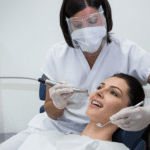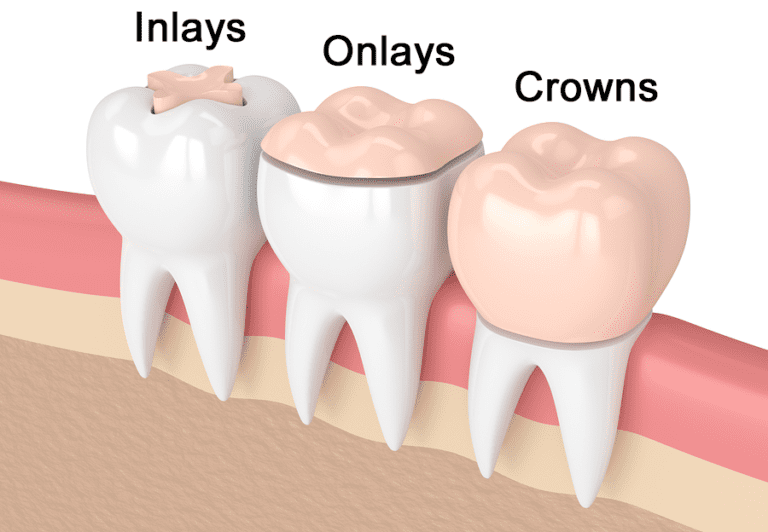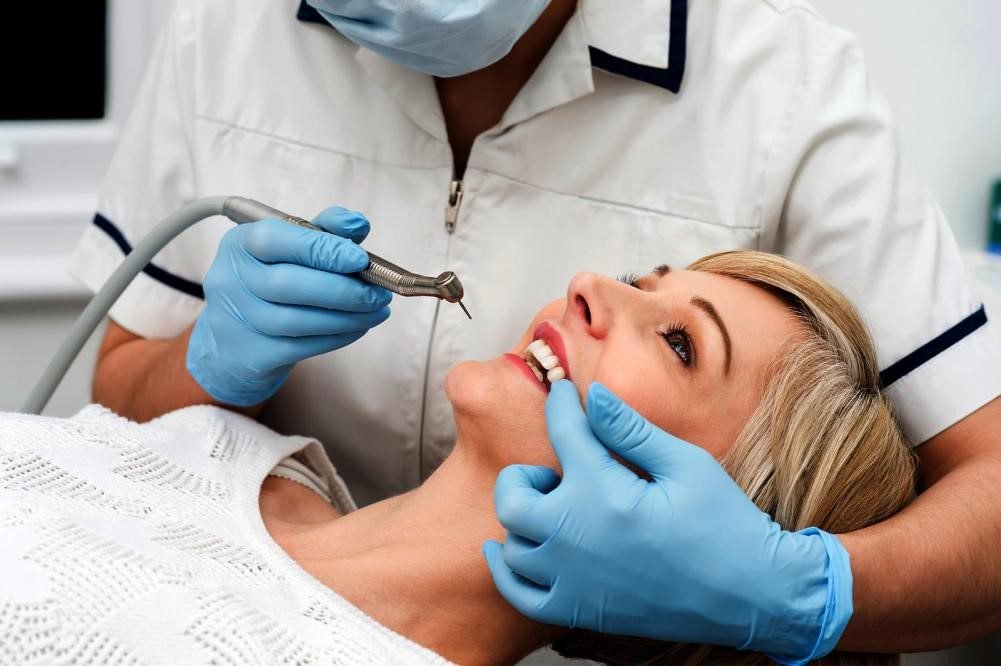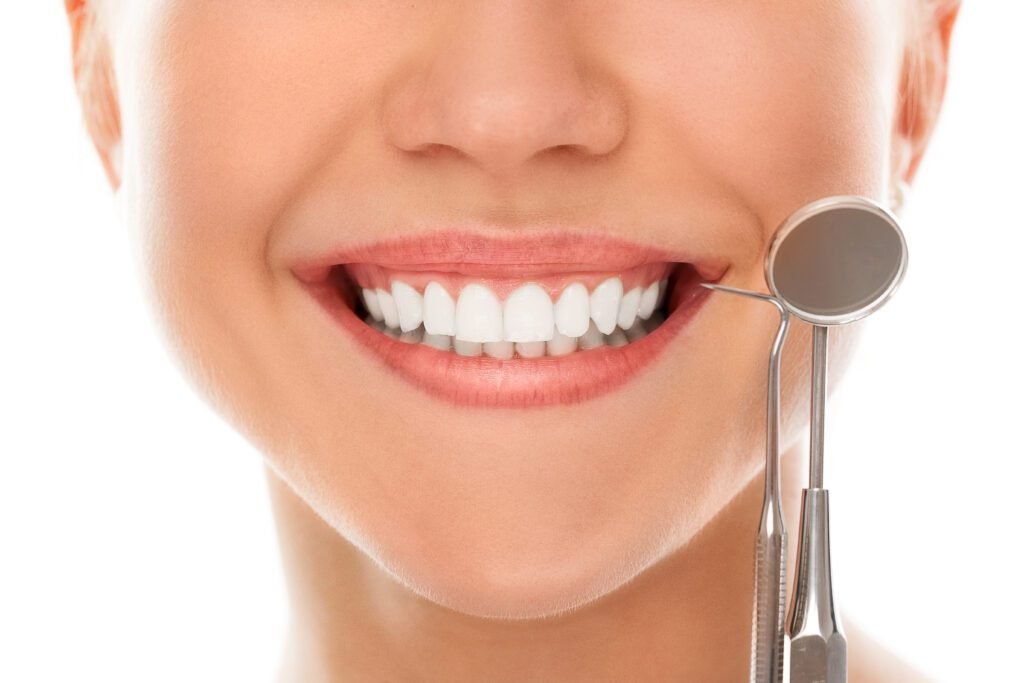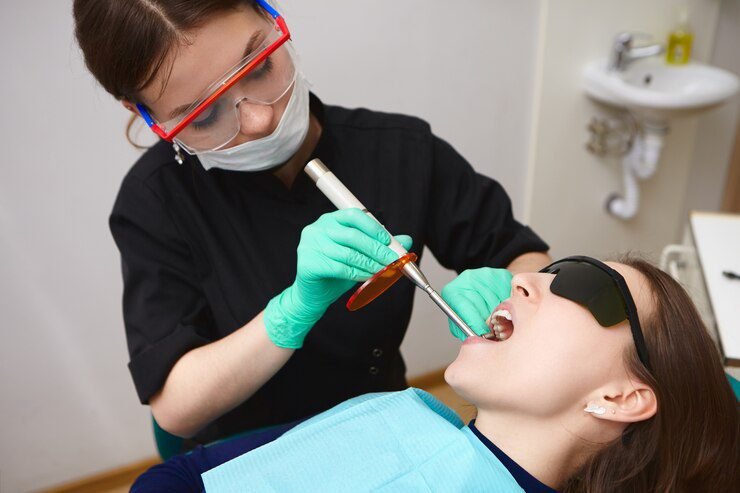Table of Contents
The Importance of Regular Dental Checkups
Regular dental checkups are a cornerstone of preventive healthcare, playing a crucial role in maintaining optimal oral health. These routine visits allow your dentist to detect and address any potential issues early on, preventing more serious problems down the line. By staying vigilant with regular checkups, you can ensure that your teeth and gums remain healthy, reducing the need for costly and invasive treatments in the future.

During your dental checkup, your dentist will thoroughly examine your mouth, teeth, and gums, looking for signs of decay, infection, or other abnormalities. Through this comprehensive assessment, any emerging issues can be identified and treated promptly, preserving your oral health and enhancing your overall well-being. Additionally, regular dental checkups provide an opportunity for professional cleanings and personalized guidance on maintaining proper oral hygiene practices at home.
Preparing for Your Appointment
Upon scheduling your dental check-up appointment, there are a few essential steps to take for optimal preparation. Initially, ensure that you provide any necessary health or insurance information beforehand to expedite the check-in process smoothly. Familiarize yourself with the location of your dental office and plan for ample time to arrive prior to your appointment time to minimize any potential stress associated with rush or late arrivals.
Moreover, to make the most of your visit, jot down any oral health concerns or questions you may have for your dentist. Additionally, it is advisable to review your dental and medical history to provide comprehensive information to your dental team. Being well-prepared not only facilitates a more efficient visit, but it also enables your dentist to address your specific needs more effectively.
Checking In at the Front Desk
Upon arrival at the dental office, the front desk staff will warmly greet you and assist in checking you in for your appointment. They will request your personal details, insurance information, and any updates to your medical history. Providing accurate information is crucial for the healthcare team to better understand your needs and ensure personalized care. The front desk personnel will also confirm your appointment details, such as the nature of the visit and any specific concerns you may have.

Following the check-in process, you may be asked to settle any outstanding payments or co-payments, depending on your insurance coverage. The front desk team will guide you regarding the available payment options and answer any queries you may have regarding billing or insurance matters. Efficiently checking in at the front desk sets the stage for a smooth and productive dental appointment, allowing the dental team to focus on providing you with the best possible care during your visit.
Updating Your Medical History
When updating your medical history at your dental appointment, it is crucial to provide accurate and detailed information about your overall health. This includes any medical conditions, medications you are currently taking, past surgeries, and any allergies you may have. Your dentist needs this information to ensure that your dental treatment is safe and tailored to your specific needs.
Moreover, updating your medical history allows your dentist to be aware of any new developments in your health that may impact your oral health. Certain medical conditions such as diabetes, heart disease, and autoimmune disorders can have implications for your dental care. By keeping your dentist informed about your medical history, you are helping them provide you with the best possible care and treatment.
Meeting with the Dental Hygienist
During your appointment with the dental hygienist, you can expect a thorough examination of your teeth and gums to assess their current health status. The hygienist will use specialized tools to remove any plaque or tartar buildup on your teeth, helping to prevent cavities and gum disease. They will also perform a scaling and polishing procedure to leave your teeth feeling clean and smooth.

Additionally, the dental hygienist will provide personalized oral hygiene instructions tailored to your specific needs. They may recommend certain products or techniques to enhance your daily dental care routine and improve your overall oral health. This consultation allows you to address any concerns or questions you may have about maintaining a healthy smile, ensuring that you leave the appointment feeling informed and empowered to take the best care of your teeth and gums.
Dental X-Rays and Imaging
Dental X-Rays and imaging play a crucial role in assessing the health of your teeth and gums beyond what is visible to the naked eye. These diagnostic tools provide valuable insights into the condition of your teeth, supporting a comprehensive understanding of your oral health. X-rays allow dentists to detect issues such as cavities, gum disease, infections, and abnormalities in the jawbone, enabling early intervention and prevention of further complications. By capturing detailed images of the internal structures of your mouth, X-rays empower dental professionals to make informed decisions regarding your treatment plan.
In addition to X-rays, modern imaging techniques like cone beam computed tomography (CBCT) offer three-dimensional views of the oral and maxillofacial region, aiding in the diagnosis and treatment of complex dental conditions. CBCT scans provide detailed images of teeth, bone, nerves, and soft tissues with minimal radiation exposure, enhancing precision and accuracy in treatment planning. These advanced imaging technologies enable dentists to tailor personalized treatment strategies, ensuring optimal outcomes for patients while prioritizing their safety and well-being.
Dental Exam by the Dentist
During the dental exam, the dentist will carefully examine your teeth, gums, and mouth for any signs of dental issues such as cavities, gum disease, or oral infections. Using specialized tools, the dentist will check for indicators of oral health problems that may not be visible to the naked eye, ensuring a thorough assessment of your dental well-being. Through this examination, the dentist can detect potential concerns early on and recommend appropriate treatment to prevent further complications.
Upon completion of the examination, the dentist will discuss their findings with you, explaining any areas of concern and outlining the recommended treatment plan. This discussion may include suggestions for improving your oral hygiene practices, such as brushing and flossing techniques tailored to your specific needs. The dentist will prioritize preventive care to maintain optimal oral health and address any existing issues promptly, emphasizing the importance of regular dental checkups in achieving long-term dental wellness.
Discussion of Oral Health Concerns
During the discussion of oral health concerns, the dentist will address any issues or symptoms that the patient has been experiencing. This is a crucial part of the dental checkup as it allows for early detection and treatment of potential problems. By openly sharing any discomfort, changes in oral health, or questions about dental care practices, patients can receive tailored advice and appropriate treatment plans to maintain good oral health.
| Oral Health Concern | Description |
|---|---|
| Tooth Decay (Cavities) | Decay of the tooth structure caused by bacteria and acids from food, leading to cavities. |
| Gum Disease (Gingivitis) | Inflammation of the gums caused by bacterial plaque buildup, leading to redness and swelling. |
| Periodontal Disease | Advanced stage of gum disease, where the infection affects the tissues and bone supporting the teeth. |
| Tooth Sensitivity | Discomfort or pain when teeth are exposed to hot, cold, sweet, or acidic foods or drinks. |
| Oral Cancer | Cancerous growth in the oral cavity, including the lips, tongue, cheeks, and throat. |
| Bad Breath (Halitosis) | Persistent unpleasant odor from the mouth caused by bacteria, food particles, or poor oral hygiene. |
| Tooth Erosion | Loss of tooth enamel due to acids from food, drink, or stomach acid, leading to tooth sensitivity and decay. |
| Tooth Loss | Loss of teeth due to decay, gum disease, trauma, or other oral health issues. |
| Dry Mouth | Insufficient saliva production, leading to discomfort, difficulty swallowing, and increased risk of tooth decay. |
| Oral Thrush | Fungal infection in the mouth, often characterized by white patches on the tongue and inner cheeks. |
Furthermore, the dentist will conduct a thorough examination of the teeth, gums, and oral tissues to identify any signs of decay, infection, or other oral health issues. This evaluation may involve examining the gums for signs of inflammation, checking for cavities or cracks in the teeth, and assessing the overall health of the mouth. Through this discussion and examination, both the dentist and the patient can work together to address any concerns and develop a plan for optimal oral health.
Professional Dental Cleaning
During a professional dental cleaning, a dental hygienist will meticulously remove plaque and tartar buildup from your teeth and along the gum line. Using specialized instruments, they will carefully clean and polish your teeth, leaving them smooth and free of any debris that can contribute to decay or gum disease. This thorough cleaning process helps to prevent cavities, gingivitis, and other oral health issues, while also giving your teeth a fresh and polished appearance.
In addition to cleaning your teeth, a professional dental cleaning typically includes a fluoride treatment to help strengthen your enamel and protect against decay. Fluoride is a mineral that can help to remineralize and repair minor tooth decay, as well as prevent future cavities. This treatment is particularly beneficial for children, individuals with a history of cavities, or those at higher risk of dental issues. By incorporating fluoride into your regular dental cleanings, you can support the long-term health and strength of your teeth.
Fluoride Treatment
Fluoride treatment is a crucial aspect of dental care that provides numerous benefits for maintaining oral health. This treatment involves the application of fluoride to the teeth, which helps to strengthen enamel and prevent tooth decay. By incorporating fluoride into your regular dental routine, you can enhance the overall health and longevity of your teeth while reducing the risk of cavities and other dental issues.
Professional fluoride treatment is particularly beneficial for children as their teeth are still developing and are more susceptible to decay. By administering fluoride in a controlled and safe manner, dentists can help children build strong and healthy teeth, setting them up for a lifetime of good oral health habits. Additionally, adults can also benefit from fluoride treatments to protect their teeth and maintain optimal oral hygiene.
Discussion of Proper Oral Hygiene Techniques
Proper oral hygiene techniques are crucial for maintaining optimal dental health and preventing various oral health issues. Brushing your teeth at least twice a day with fluoride toothpaste helps to remove plaque and bacteria that can cause cavities and gum disease. Make sure to brush all surfaces of your teeth, including the hard-to-reach areas at the back of your mouth.
In addition to brushing, it is essential to floss daily to remove food particles and plaque from between your teeth where your toothbrush cannot reach. Flossing helps to prevent gum disease and tooth decay by cleaning the areas that are prone to buildup. Mouthwash can also be a beneficial addition to your oral hygiene routine, as it can help kill bacteria and freshen your breath. Remember to schedule regular dental checkups to monitor your oral health and receive professional cleanings to keep your smile healthy and bright.
| Oral Hygiene Technique | Description |
|---|---|
| Brushing | – Brush teeth at least twice a day, preferably after meals and before bedtime. |
| – Use a soft-bristled toothbrush to prevent gum irritation and enamel erosion. | |
| – Brush all surfaces of the teeth, including the front, back, and chewing surfaces. | |
| – Use fluoride toothpaste to strengthen enamel and prevent tooth decay. | |
| Flossing | – Floss daily to remove plaque and food particles from between teeth and under gums. |
| – Use about 18 inches of floss, winding most of it around one finger of each hand. | |
| – Gently insert the floss between teeth and curve it around each tooth in a C shape. | |
| – Slide the floss up and down against the tooth surface and under the gumline. | |
| Mouthwash | – Use an antimicrobial mouthwash to help kill bacteria and freshen breath. |
| – Rinse with mouthwash for about 30 seconds, then spit it out without swallowing. | |
| – Mouthwash can be used as an adjunct to brushing and flossing, not a replacement. | |
| Tongue Cleaning | – Use a tongue scraper or the back of the toothbrush to gently clean the tongue. |
| – Start at the back of the tongue and gently scrape forward to remove bacteria. | |
| – Rinse the tongue scraper or toothbrush after each pass to remove debris. | |
| Regular Dental Check-ups | – Visit the dentist at least twice a year for routine cleanings and examinations. |
| – Dentists can detect and treat oral health issues early, preventing serious problems. | |
| – Professional cleanings remove plaque and tartar buildup that brushing may miss. |
Checking for Signs of Oral Cancer
During a routine dental checkup, your dentist will carefully examine your mouth for any signs of oral cancer. This is a crucial aspect of the visit as early detection of oral cancer can significantly increase the chances of successful treatment. Your dentist will look for abnormal patches of tissue, lumps, bumps, or sores that may indicate the presence of oral cancer. Additionally, they may palpate the lymph nodes in your neck to check for any signs of swelling, which can be another indicator of a potential issue.
It is important to mention any lingering symptoms or concerns you may have about your oral health during your appointment. Your dentist will take note of any relevant information and investigate further if necessary. Remember, regular dental checkups are not only essential for maintaining good oral health but also for detecting any potential issues, including oral cancer, at an early stage.
Discussion of Recommended Treatments
When discussing recommended treatments during your dental visit, it’s important to trust the expertise of your dentist. Based on the findings from your dental exam and any X-rays, the dentist will suggest tailored treatments to address any oral health issues you may have. These treatments could range from simple preventative measures like fluoride treatments to more advanced procedures such as fillings, root canals, or even orthodontic interventions. It’s crucial to have an open dialogue with your dentist about the recommended treatments, asking any questions you may have to fully understand the proposed plan of action for your oral health.
Your dentist will take into consideration your overall oral health, any existing conditions, and your personal preferences when recommending treatments. They will explain the rationale behind each suggested treatment, outlining the potential benefits and any possible risks or side effects. It’s essential to take an active role in this discussion, sharing any concerns or reservations you may have. By working together with your dentist to create a treatment plan that aligns with your needs and goals, you can ensure the best possible outcomes for your oral health.
Scheduling Follow-Up Appointments
Once your dental checkup is complete, it’s crucial to schedule your follow-up appointments promptly. Regular visits to the dentist are vital for maintaining optimal oral health and preventing any potential issues from escalating. By adhering to the recommended appointment schedule, you can address any concerns early on, ensuring a proactive approach to your dental care.
When scheduling your next visit, consider setting a reminder on your calendar or phone to minimize the chance of forgetting your appointment. Additionally, discussing the frequency of follow-up visits with your dentist will help tailor a plan that suits your specific needs. Remember, these appointments are not only about treatment but also about preventive care and education, empowering you to take control of your oral health for the long term.
Reviewing Insurance Coverage and Payment Options
When it comes to ensuring your dental health, understanding your insurance coverage and payment options is crucial. Reviewing these aspects before your dental appointment helps you plan for any out-of-pocket expenses and prevents surprises when it comes to billing. Knowing what services are covered by your insurance can also guide you in making informed decisions about your treatment plan.
During your appointment, the front desk staff will assist you in reviewing your insurance coverage and discussing different payment options available to you. Having this conversation upfront can alleviate any financial concerns you may have and allow you to focus on your oral health needs. Be sure to ask any questions you may have regarding billing, insurance claims, or payment plans to ensure a smooth and stress-free experience at the dental office.
How can I find out what my insurance covers for dental appointments?
Contact your insurance provider directly or speak with the front desk staff at the dental office to inquire about your coverage.
What payment options are typically available for dental appointments?
Payment options may include cash, credit/debit cards, checks, or payment plans. Some offices also accept dental insurance.
Can I set up a payment plan for more extensive dental treatments?
Yes, many dental offices offer payment plans for patients undergoing more extensive or costly treatments. Be sure to inquire about this option before scheduling your appointment.
What should I do if I don’t have dental insurance?
Speak with the dental office staff about alternative payment options or discount programs that may be available for patients without dental insurance.
Will the dental office help me submit claims to my insurance provider?
Many dental offices will assist patients in submitting claims to their insurance providers. Be sure to ask about this service if needed.


